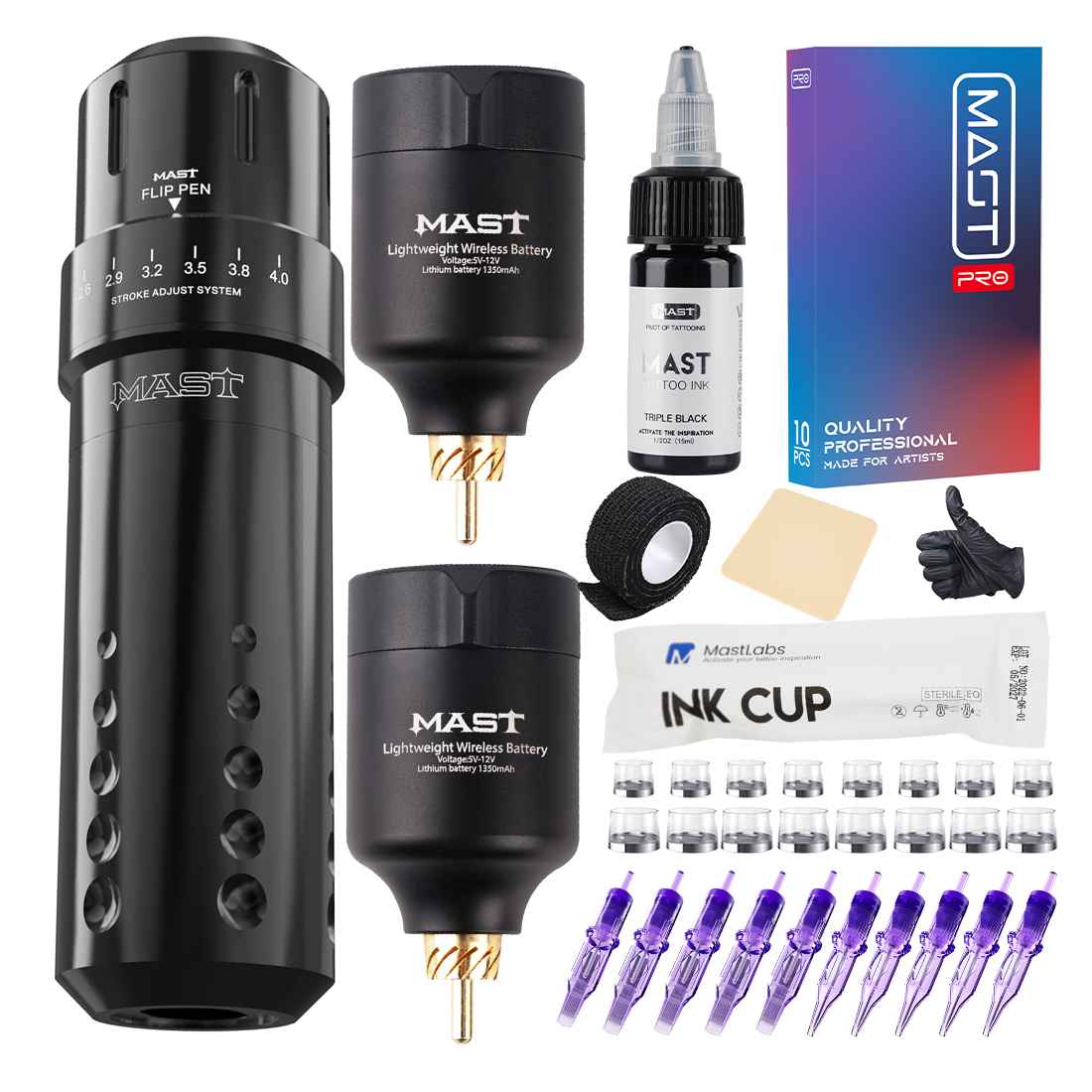Getting a tattoo is a personal choice and a form of self-expression for many individuals.
However, if you have a medical condition, you might be wondering if it’s safe to get a tattoo.
This article aims to fully answer the question, “Is it safe to get a tattoo if I have a medical condition?”
It will address the concerns surrounding tattoos and various medical conditions, shedding light on the safety considerations and precautions you should take.
Understanding Medical Conditions and Tattoos
Before diving into the specific medical conditions and their relation to tattoos, it’s crucial to understand that each medical condition is unique.
Therefore, it’s essential to consult with a medical professional before getting a tattoo to assess any potential risks or complications based on your specific condition.
Also Read: Can tattoo cause infection? Find out
Consultation with a Medical Professional
When considering getting a tattoo with a medical condition, scheduling a consultation with a qualified medical professional is strongly advised.
They can provide personalized guidance based on your condition, medication, and overall health.
It’s important to be open and honest about your medical history to ensure a safe tattoo experience.
Also Read: Can a Tattoo Needle Hit Bone?
Tattoo Safety Precautions
To ensure the safety of individuals with medical conditions, reputable tattoo artists and studios adhere to strict safety protocols.
They follow proper sterilization procedures, use disposable needles and tubes, and maintain a clean environment to minimize the risk of infections and complications.
Also Read: Can a tattoo needle hit a nerve?
Allergic Reactions and Infections
People with medical conditions may have a higher risk of allergic reactions and infections.
It is crucial to inform your tattoo artist about any known allergies or sensitivities to avoid complications.
Adhering to proper aftercare instructions, such as keeping the tattoo clean and avoiding exposure to potential irritants, can significantly reduce the risk of infections.
Also Read: Do You Lose Blood During a Tattoo?
Common Medical Conditions and Tattoo Safety
It’s time to explore some common medical conditions and the safety measures you can take when getting a tattoo.
1. Diabetes and Tattoos
If you have diabetes, it’s crucial to have your blood sugar levels under control before getting a tattoo.
Poorly managed diabetes can lead to slower healing and an increased risk of infection.
It’s recommended to consult with your healthcare provider and inform your tattoo artist about your condition to ensure proper care during and after the tattooing process.
2. Heart Conditions and Tattoos
Individuals with heart conditions should exercise caution when considering a tattoo.
The stress associated with getting a tattoo can potentially affect heart rate and blood pressure.
It’s essential to discuss your heart condition with both your healthcare provider and tattoo artist to determine if any specific precautions or modifications are necessary.
Also Read: What Happens if a Tattoo Needle Goes Too Deep?
3. Skin Conditions and Tattoos
Certain skin conditions, such as eczema, psoriasis, or dermatitis, can complicate the tattooing process.
The tattooing procedure can irritate the skin, potentially triggering flare-ups or infections.
Consulting with a dermatologist and discussing your skin condition with a professional tattoo artist is crucial to minimize risks and ensure proper aftercare.
4. Immune System Disorders and Tattoos
Individuals with compromised immune systems, such as those with autoimmune disorders or undergoing immunosuppressive therapy, should approach getting a tattoo with caution.
These conditions can affect the body’s ability to heal and fight off infections.
Seeking guidance from a healthcare professional is essential to assess the potential risks and ensure appropriate safety measures.
5. Blood Disorders and Tattoos
Blood disorders, such as hemophilia or excessive bleeding disorders, can pose challenges during the tattooing process.
The risk of excessive bleeding and difficulties with clotting can increase.
Individuals with blood disorders should consult with their healthcare provider and possibly a hematologist before considering a tattoo.
6. Allergies and Tattoos
If you have known allergies, especially to certain metals or tattoo ink components, it’s important to inform your tattoo artist beforehand.
They can recommend hypoallergenic alternatives or conduct patch tests to identify potential reactions.
Taking necessary precautions can minimize the risk of allergic reactions or other complications.
7. Pregnancy and Tattoos
During pregnancy, getting a tattoo is generally discouraged. Hormonal changes and an altered immune system can increase the risk of infections and complications.
Additionally, certain tattoo inks may contain ingredients that could potentially harm the developing fetus.
It’s advisable to wait until after pregnancy to get a tattoo and discuss any concerns with your healthcare provider.
8. Cancer and Tattoos
For individuals who have had or are currently undergoing cancer treatment, getting a tattoo may require additional considerations.
Radiation therapy, chemotherapy, or compromised immune systems can affect the healing process and increase the risk of infections.
Consultation with an oncologist and tattoo artist experienced in working with cancer survivors is essential to ensure safety.
9. HIV/AIDS and Tattoos
Individuals with HIV/AIDS should approach getting a tattoo cautiously.
With a weakened immune system, the risk of infections and complications may be higher.
It’s crucial to discuss the decision with both a healthcare provider and a knowledgeable tattoo artist who follows strict infection control protocols.
Conclusion
Let’s wrap it up on the question, “Is it safe to get a tattoo if I have a medical condition?”
When it comes to getting a tattoo with a medical condition, proper consultation with medical professionals is crucial.
Each medical condition has its unique considerations, and understanding the potential risks and precautions is vital for a safe tattoo experience.
By being open and honest with both healthcare providers and tattoo artists, you can make informed decisions and ensure the best possible outcome.
FAQs
Can I get a tattoo if I have diabetes?
Getting a tattoo with diabetes is possible, but it’s important to have your blood sugar levels under control and consult with your healthcare provider and tattoo artist.
What precautions should individuals with heart conditions take before getting a tattoo?
Individuals with heart conditions should discuss their condition with both their healthcare provider and tattoo artist to assess any necessary precautions.
Are there specific risks associated with tattoos for individuals with skin conditions?
Certain skin conditions can complicate the tattooing process and increase the risk of flare-ups or infections.
Consultation with a dermatologist and experienced tattoo artist is recommended.
Can individuals with compromised immune systems get tattoos?
Getting a tattoo with a compromised immune system requires careful consideration and consultation with healthcare professionals to assess risks and safety measures.
Is it safe to get a tattoo during pregnancy?
Generally, it is advisable to wait until after pregnancy to get a tattoo due to the hormonal and immune system changes that increase the risk of complications.
Can I get a tattoo if I have a chronic illness?
While it depends on the specific illness and your overall health, it is recommended to consult with your healthcare provider before getting a tattoo.
How can I minimize the risk of infections after getting a tattoo?
Follow your tattoo artist’s aftercare instructions diligently, keep the tattoo clean, avoid exposing it to potential irritants, and seek medical attention if you notice any signs of infection.
Are there any specific concerns for people with autoimmune diseases?
Yes, individuals with autoimmune diseases should consult with their specialist to understand potential risks and ensure proper management before getting a tattoo.
Can diabetes affect the healing process of a tattoo?
Yes, diabetes can potentially affect the healing process due to slower wound healing. It is crucial to monitor blood sugar levels closely and follow proper aftercare instructions.
Is it safe to get a tattoo while pregnant?
Generally, it is advisable to avoid getting tattoos during pregnancy due to potential risks to both the mother and the baby. Consult with your healthcare provider for personalized advice.
P.S.
Remember, it’s crucial to consult with healthcare professionals and tattoo artists who can provide personalized guidance based on your specific medical condition and overall health.






